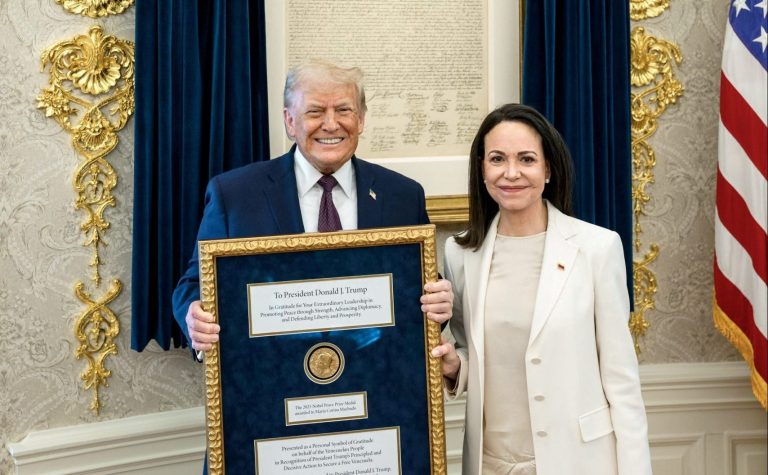
Economist and policy analyst, Kelvin Emmanuel, has criticised the Nigerian Midstream and Downstream Petroleum Regulatory Authority (NMDPRA) for what he described as poor performance and inefficiency since the signing of the Petroleum Industry Act (PIA) in 2021.
Speaking on ARISE News on Sunday, Emmanuel said the regulator had failed to live up to its statutory responsibilities under the PIA, particularly in the area of product testing and data transparency.
“To be honest with you, I don’t think NMDPRA has done well,” he said, reacting to reports about alleged importation of high-sulphur petrol by the Dangote Refinery.
“The story making headlines that Dangote imported high-sulphur petrol is not true. What actually happened was that Dangote imported a cargo of intermediate feedstock, which is a standard industry practice across countries like Malaysia, Singapore, China, India, the US, the UK, Saudi Arabia, and the UAE.”
He explained that the NMDPRA had failed to carry out proper testing of petroleum products as mandated by the PIA. “The regulator should have tested the product in its lab as required under sections 29 to 52 of the PIA, which mandates it to verify sulphur limits and distillation levels. Unfortunately, NMDPRA has no lab,” he stated.
Emmanuel added that Dangote’s refinery had been operating within global standards. “Dangote’s refinery, in fact, exported petrol to the US recently with a sulphur level of 36 parts per million (ppm), while Nigeria’s limit is 50 ppm. That shows the refinery is producing products of even higher quality than Nigeria’s specification,” he noted.
In contrast, he praised the Nigerian Upstream Petroleum Regulatory Commission (NUPRC) for its achievements since the implementation of the PIA.
“NUPRC has made remarkable progress. It helped Nigeria recover from producing less than one million barrels per day in 2021 to meeting and even hitting OPEC quota recently,” he said.
According to Emmanuel, “The commission expanded Nigeria’s proven and probable reserves by engaging consultants to conduct seismic data analysis of offshore acreage, reducing the rate of dry wells.” He further commended the commission’s effort on host community development and data transparency, saying, “It has also made progress with the Host Communities Development Trust and developed a hydrocarbon accounting framework that allows the government and its agencies to have real-time data on production.”
However, Emmanuel faulted the recent policy transferring royalty collection to the Federal Inland Revenue Service (FIRS). “I disagree with the new policy that moves royalty collection to the Federal Inland Revenue Service because the NUPRC has the technical expertise to calculate royalties based on volume, depth, and price,” he said.
On Nigeria’s competitiveness in the oil and gas industry, Emmanuel highlighted that while production levels have improved, attracting investment remains a challenge. “In the last three months, Nigeria has reached its OPEC quota of 1.5 million barrels per day. But the challenge is increasing technical allowance rates to produce more barrels,” he explained.
He warned that Nigeria’s petroleum fiscal terms are becoming less attractive compared to other African producers. “Other African producers like Senegal, Uganda, Cameroon, Niger, and Namibia are expanding production. The cost of capital in Nigeria is also too high. Lenders add a country risk premium of 3–4 percent on top of standard rates, which makes it difficult for companies to achieve returns comparable to peers elsewhere,” he said.
Emmanuel blamed the situation on macroeconomic instability rather than regulatory inefficiency at NUPRC. “This is not the fault of NUPRC but of the Central Bank and fiscal authorities. Inflation must be reduced so that borrowing costs can fall, making the industry more competitive,” he added.
He also criticised the NMDPRA for lacking clarity in its mandate. “NUPRC has done far better in operationalising the PIA. But NMDPRA still lacks clarity in its mandate and efficiency,” he said. “The authority cannot tell Nigerians how much petrol the country consumes daily. The figure of 50 million litres per day is not based on empirical evidence but on projections.”
“The PIA requires NMDPRA to have a standard lab to test petroleum products for sulphur limits, octane ratings, and density… but it doesn’t. It outsources tests to third parties, raising integrity concerns,” Emmanuel added.
He warned that such lapses undermine investor confidence and effective planning. “If the regulator cannot provide empirical consumption data, how can the government or investors plan accurately? This lack of data discourages investment and shows that NMDPRA’s leadership has failed,” he said. “I think the president should consider replacing the current leadership of NMDPRA.”
Offering his broader advice to the government, Emmanuel urged President Bola Tinubu to re-evaluate Nigeria’s relationship with OPEC. “If I were advising the president, I would tell him to reassess Nigeria’s relationship with OPEC. As Nigeria transitions from being a crude exporter to a net exporter of refined products, there is a need to delink domestic refinery supply from OPEC production quotas,” he said.
“Dangote Refinery, for instance, spends about $650 million monthly importing crude. The president must consider whether staying under OPEC’s current quota system serves Nigeria’s best interests,” he added.
When asked if he was specifically recommending leadership changes at both regulatory agencies, Emmanuel said, “I will keep my finger to my left hand, but I would ask the president to take NMDPRA leadership out. It has performed very poorly since the PIA was signed.”
Faridah Abdulkadiri



